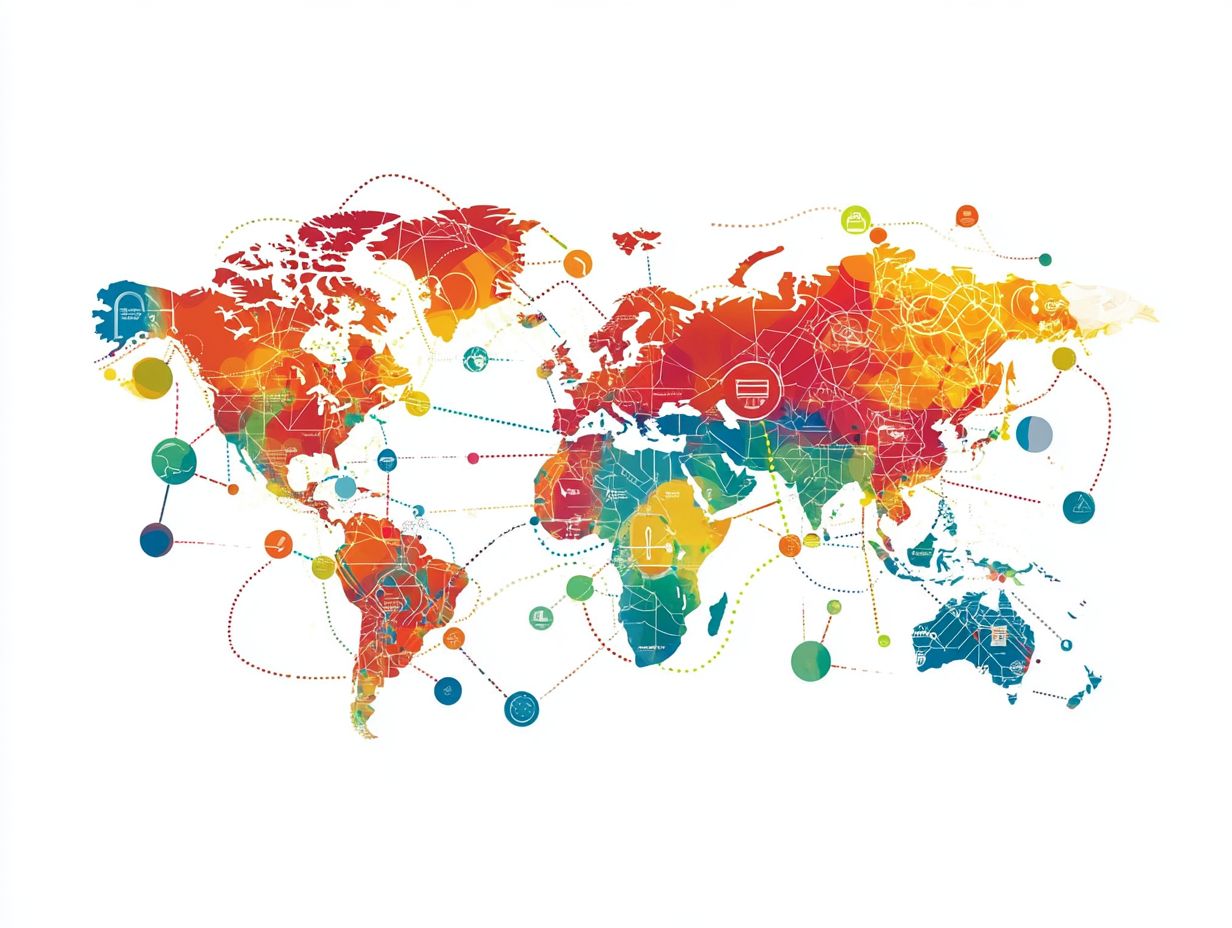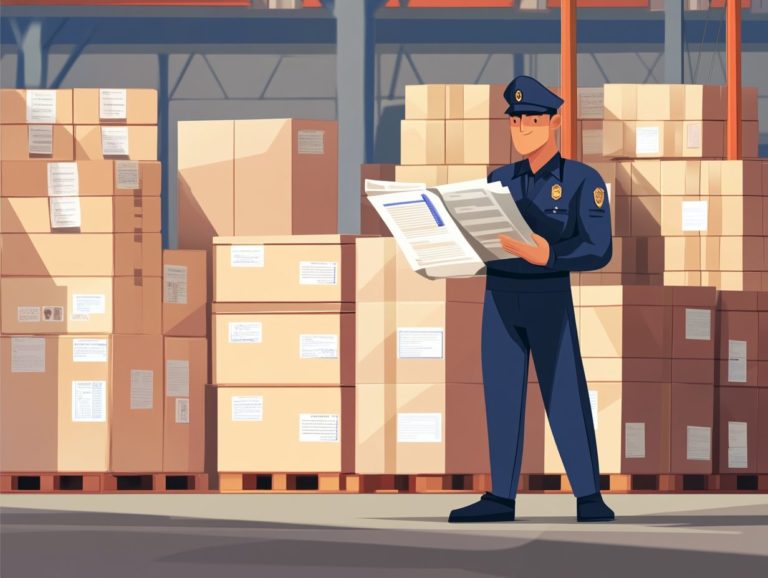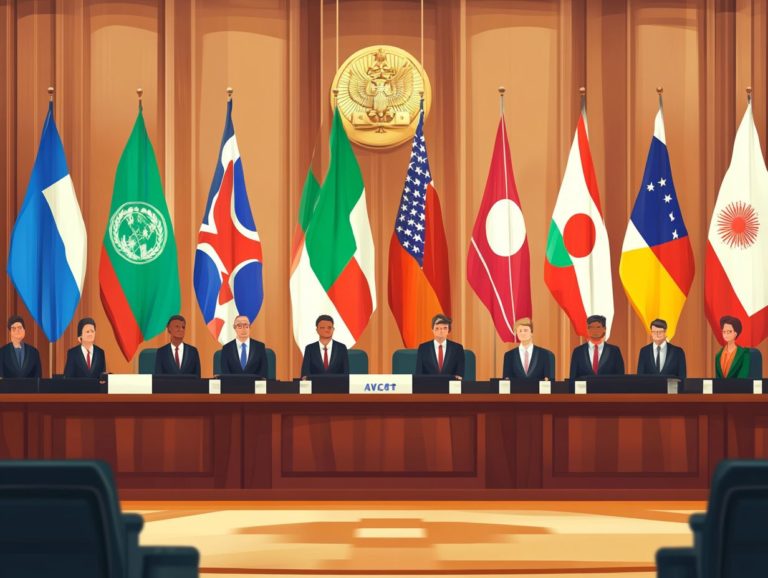5 Countries with the Most Effective IP Enforcement
Intellectual property (IP) is essential for fostering innovation, creativity, and economic growth. As your business expands globally, safeguarding these rights becomes increasingly vital.
This article delves into five countries that excel in effective IP enforcement: Japan, the United States, Germany, France, and South Korea.
Each of these nations adopts unique strategies to protect intellectual property, contributing to a robust global IP landscape. Explore what makes their approaches effective and the challenges they encounter in maintaining strong IP protections.
Contents
- Key Takeaways:
- 1. Japan: Protecting Intellectual Property Rights
- 2. United States: Strong Legal Framework for IP Protection
- 3. Germany: Efficient and Transparent IP Enforcement System
- 4. France: Strict Measures Against IP Infringement
- 5. South Korea: Strong Government Support for IP Protection
- What Is Intellectual Property and Why Is It Important?
- Frequently Asked Questions
- Which Are the Top 5 Countries with the Most Effective IP Enforcement?
- What Makes the United States a Leader in IP Enforcement?
- How Does Japan Handle IP Enforcement?
- What Measures Does Germany Have in Place for IP Enforcement?
- How Does France Enforce IP Rights?
- What Steps Has the United Kingdom Taken to Improve IP Enforcement?
- IP Enforcement Across Different Countries
Key Takeaways:
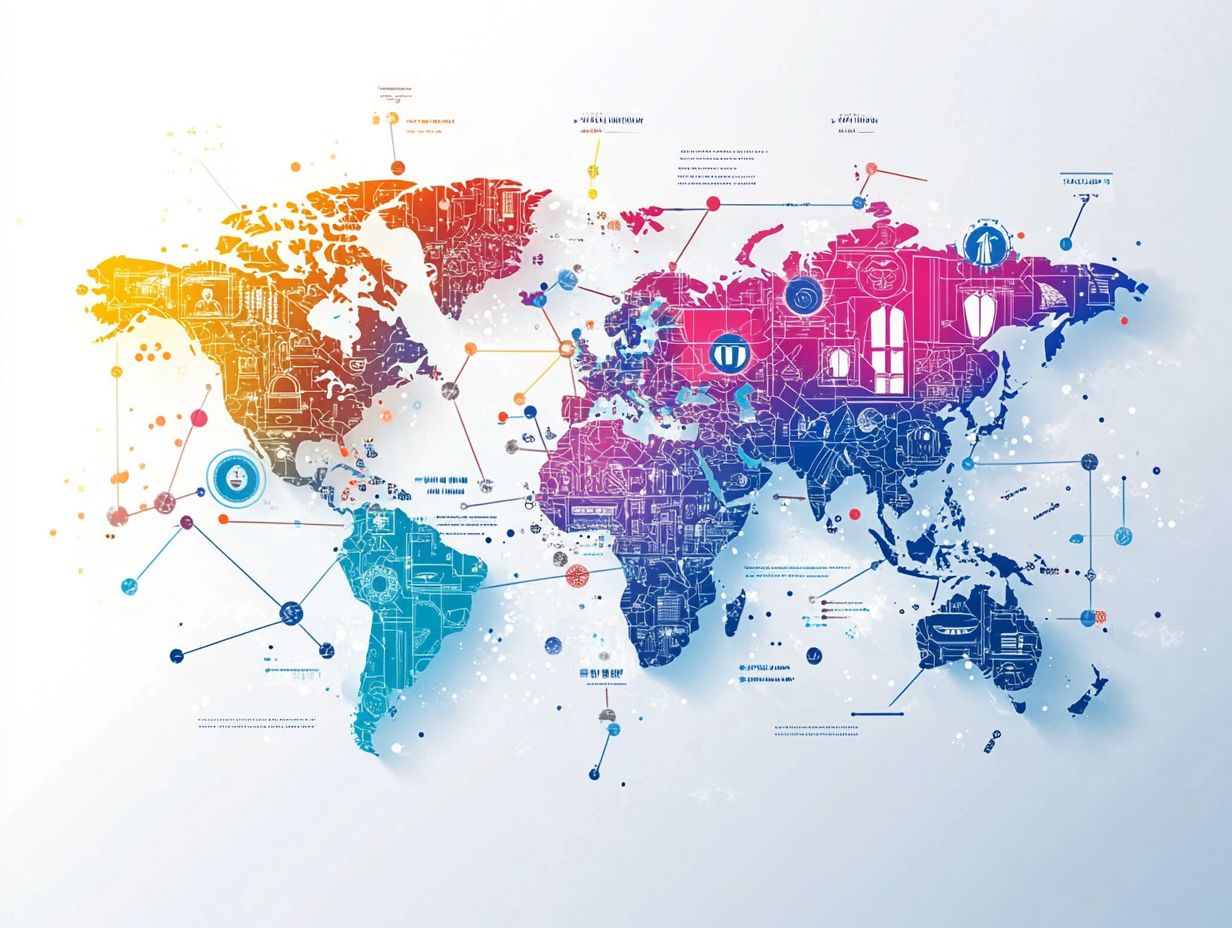
1. Japan has a strong system to protect intellectual property rights, making it a top performer in IP enforcement.
2. The United States has strict laws for IP protection, with tough penalties for violations.
3. Germany’s efficient and transparent IP enforcement allows for quick dispute resolution and strong IP rights protection.
1. Japan: Protecting Intellectual Property Rights
Japan has created a strong framework for protecting intellectual property rights. This is crucial for fostering innovation and driving economic growth in an increasingly competitive global market.
With stringent laws to combat counterfeiting, Japan shines in the GIPC Index for enforcing trademarks and copyrights effectively. This strong legal environment protects local businesses and encourages new investments, establishing Japan as a benchmark for intellectual property protection in the region.
The country s enforcement agencies, including the Japan Patent Office, play a key role in upholding these laws. They ensure compliance through rigorous inspections and legal actions against infringements, reinforcing the integrity of the system.
Recent legal decisions have enhanced the trademark registration process. Businesses can secure their branding more effectively, which is crucial for economic stability and promotes fair competition.
Some nations struggle with weaker enforcement mechanisms, leading to higher rates of intellectual property theft. This disparity underscores Japan’s unwavering commitment to a robust legal framework, which fuels its economic dynamism and positions it favorably in the global marketplace.
2. United States: Strong Legal Framework for IP Protection
The United States offers a robust legal system for intellectual property protection, featuring effective systems for patents, copyrights, and trademark registration. These play a crucial role in driving economic growth.
Landmark legislation such as the Patent Act and the Copyright Act provides comprehensive guidelines for creators to secure their rights. Significant legal decisions, including the Supreme Court s ruling in Eldred v. Ashcroft, have refined these protections and emphasize the importance of preserving intellectual property.
Organizations like the U.S. Chamber of Commerce advocate for your rights, enforcing policies that penalize infringement while promoting compliance. This proactive approach fosters a culture of creativity and innovation, positioning the U.S. ahead of many other countries in the global race for intellectual property protection, paving the way for sustained economic growth.
Learn more about how to protect your IP rights today!
3. Germany: Efficient and Transparent IP Enforcement System
Germany stands out for its efficient and transparent intellectual property enforcement system. It offers robust remedies against infringement and creates an environment ripe for innovation and business growth.
Your confidence as a creator or corporation is bolstered by Germany’s unwavering commitment to intellectual property rights. Legal decisions consistently protect your rights.
The effectiveness of this system is rooted in a strong legal framework, including the Trademark Act and the Copyright Act, which clearly outline protections for various types of intellectual property.
The judiciary plays a crucial role here. Specialized courts expertly manage IP cases, guaranteeing swift and equitable resolutions.
This judicial efficiency fosters trust among local entrepreneurs and international firms. They can navigate the intricate landscape of IP protection with confidence.
This dynamic creates a vibrant marketplace. It benefits all stakeholders.
4. France: Strict Measures Against IP Infringement
France enforces strict measures against intellectual property infringement. The country places a strong emphasis on combating counterfeiting and establishing robust enforcement mechanisms to safeguard creators’ rights.
You can see this commitment in action through various legal decisions that highlight France s dedication to upholding high standards in intellectual property law. This ultimately supports economic stability and growth.
The regulatory landscape is shaped by an array of laws, including the Intellectual Property Code, which governs copyrights, trademarks, and patents. Regulatory bodies like the National Institute of Industrial Property (INPI) play a crucial role in both registration and enforcement.
Landmark cases, such as the significant ruling regarding the ‘Dior’ trademark, serve as prime examples of judicial efforts aimed at curbing infringement and protecting brand integrity.
These legal frameworks strengthen the position of domestic innovators and enhance France’s appeal to foreign investors. This fosters a balanced environment for creative industries in both local and global markets.
5. South Korea: Strong Government Support for IP Protection
South Korea exemplifies strong government support for intellectual property protection. It boasts comprehensive enforcement policies that uphold patents and copyrights.
This strategic approach fosters economic growth and innovation, elevating the country s standing in the global market. As a result, it becomes an attractive destination for foreign investments and partnerships.
By introducing initiatives such as streamlined patent application processes and specialized IP courts, the government ensures that you, as creators and innovators, receive the protection you deserve.
Extensive educational programs aimed at raising awareness about intellectual property rights play a vital role in creating a culture that respects innovation. This robust framework gives your business the power to thrive while enhancing your competitiveness on the international stage.
Ultimately, this contributes to a more dynamic and resilient economy.
What Is Intellectual Property and Why Is It Important?
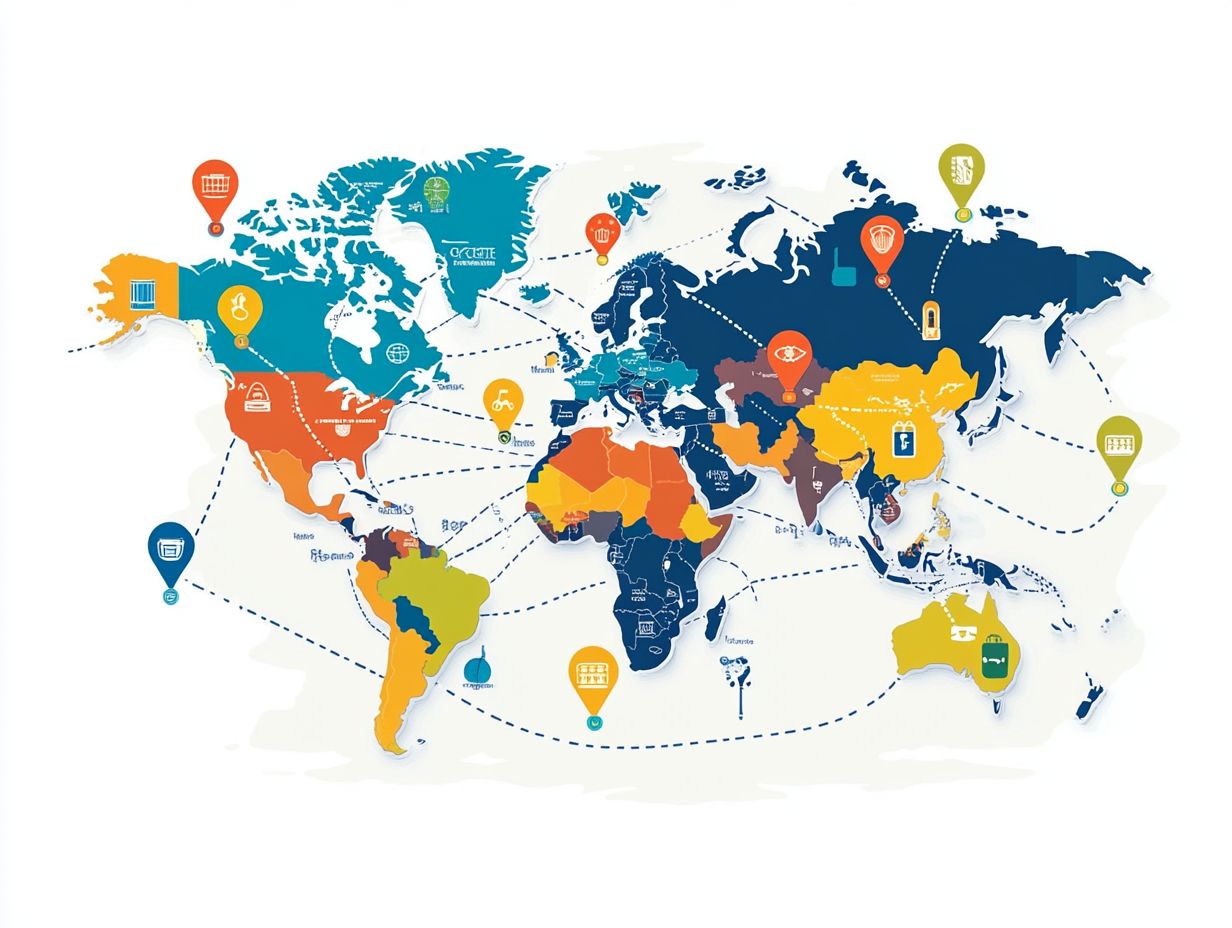
Intellectual property refers to creations of the mind, like inventions and artistic works. It encompasses a range of legal rights that protect your creations, including patents, copyrights, and trademarks.
These rights are pivotal for innovation and economic growth in the global market. By safeguarding them, countries create an environment that encourages your creativity, investment, and the dissemination of knowledge. This benefits both you as a creator and consumers alike.
In industries like technology and biopharmaceuticals, the importance of intellectual property becomes particularly evident. These sectors rely heavily on research and development.
Patents grant you exclusive rights to your inventions for a specific period. This incentivizes innovation and gives you the necessary time to recover your investment costs.
Copyrights protect your artistic and literary works. They ensure you receive recognition and financial compensation for your contributions.
Trademarks safeguard your brand identity and consumer trust, which are crucial for distinguishing yourself in a competitive marketplace.
These intellectual property rights contribute to economic growth. They also play a vital role in shaping global market dynamics by encouraging competition and ensuring the fair exchange of ideas.
How Do Countries Enforce Intellectual Property Rights?
Countries implement intellectual property rights through various mechanisms, including strong laws, government agencies, and international treaties, all designed to combat infringement and promote adherence to IP laws.
The effectiveness of these enforcement measures often depends on the clarity of the policies. The legal systems must adapt to the evolving challenges of intellectual property theft.
International treaties also play a vital role in enhancing collaborative enforcement by establishing standardized protocols among member nations. These treaties promote a cohesive strategy for addressing intellectual property violations and facilitate knowledge sharing between governments.
Legal rulings from higher courts set precedents that can either strengthen or undermine enforcement practices. This showcases the dynamic relationship between law and practice.
As countries navigate this intricate landscape, their dedication to effective enforcement can profoundly impact global trade and innovation.
What Are the Consequences of Weak IP Enforcement?
Weak enforcement of intellectual property rights can lead to serious repercussions, such as a surge in counterfeiting, a decline in innovation, and stunted economic growth. These issues can erode a nation’s competitive edge in the global market.
When strong laws and enforcement policies are absent, an environment emerges where intellectual property theft thrives. This discourages both investments and creativity.
Imagine losing money and market share to counterfeit products! This can lead to layoffs and a decline in overall economic activity.
Consumers also suffer from subpar knock-offs, which often can’t meet quality expectations and may pose health risks.
A report from the International Chamber of Commerce estimates that counterfeiting and piracy cost the global economy over $4 trillion each year. This staggering figure highlights the extensive impact of weak IP enforcement on economic stability and growth.
Industries that rely on innovation, such as pharmaceuticals and technology, may see a reduction in investment in research and development. This further hinders advancements that could benefit society as a whole.
How Do Countries Compare in Terms of IP Enforcement?
Countries exhibit significant variations in their enforcement of intellectual property rights, as highlighted by the GIPC Index. This index ranks nations according to their effectiveness in IP protection and enforcement.
This comparative analysis provides valuable insights into the strengths and weaknesses of different countries’ systems. Ultimately, this influences their economic growth and positioning within the global market.
Nations with strong IP enforcement mechanisms are more likely to attract foreign investments and foster innovation. In contrast, those with weaker protections often grapple with economic instability and diminished competitiveness.
By assessing the diverse enforcement levels across countries, we can see how these disparities affect individual businesses and shape entire industries and their respective markets.
Countries that rank higher in the GIPC Index typically enjoy accelerated economic growth. They cultivate an environment that nurtures creativity and entrepreneurship, enhancing their global standing and influence in international trade.
What Steps Can Countries Take to Improve IP Enforcement?
Countries have several strategies to improve how we protect ideas and inventions. By refining legal frameworks, increasing public awareness, and implementing more effective remedies for infringement, significant strides can be made in safeguarding economic interests and encouraging innovation.
Embracing best practices and learning from successful models worldwide empowers enforcement efforts. For instance, investing in education ensures that both the public and private sectors understand the nuances of intellectual property rights. Take Germany as an example; their initiatives aimed at training stakeholders in IP law have led to a notable drop in infringement cases.
It s crucial to strengthen legal systems now to keep up with rapid technological changes! Ensuring that legislation is robust and adaptable to emerging technologies is essential. South Korea serves as a prime example, regularly updating its laws to encompass digital copyrights.
Fostering international collaborations, such as those within the European Union, helps countries share best practices and resources. This ultimately leads to more cohesive and effective enforcement on a global scale.
What Are the Challenges of IP Enforcement in the Global Market?
The challenges in enforcing intellectual property rights in the global market are multifaceted, touching on issues like counterfeiting, jurisdictional disputes, and varying legal standards across countries. These factors complicate enforcement efforts, making it increasingly difficult for governments to protect intellectual property effectively.
International treaties designed to standardize IP rights enforcement often face hurdles during implementation. Countries interpret and adapt these agreements based on their unique legal systems and economic contexts. For example, countries with weaker enforcement capabilities may struggle to meet the standards set by these treaties, leading to inconsistencies that undermine collective global efforts.
The rapid rise of digital technologies and e-commerce has intensified the counterfeiting issue, enabling counterfeit goods to flourish online and diminishing the effectiveness of existing laws and regulations intended to safeguard intellectual property. This reality creates an urgent need for innovative solutions and cooperative strategies among nations to tackle these ongoing challenges.
Frequently Asked Questions
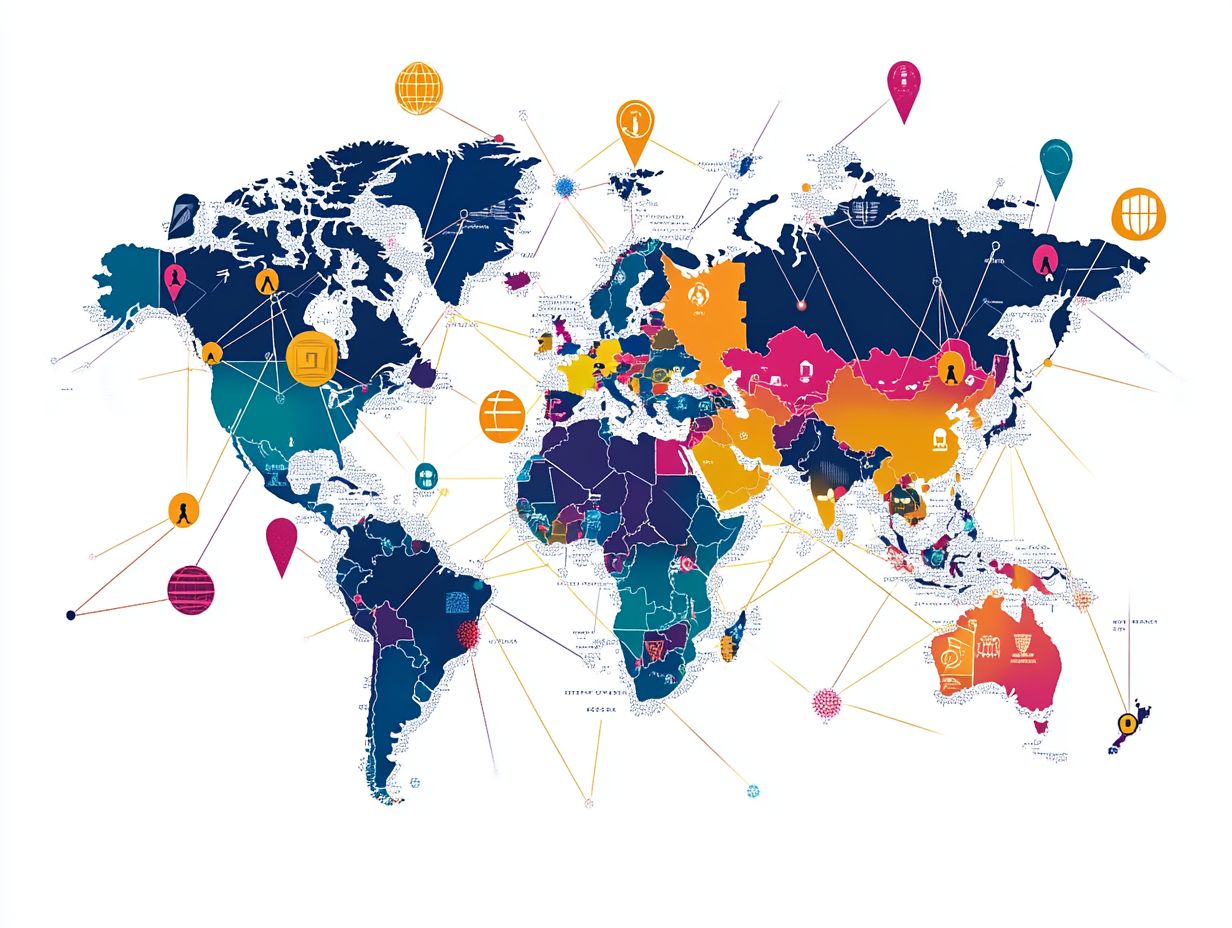
Which Are the Top 5 Countries with the Most Effective IP Enforcement?
The top 5 countries with the most effective IP enforcement are the United States, Japan, Germany, France, and the United Kingdom.
What Makes the United States a Leader in IP Enforcement?
The United States has a well-established legal system and strong laws protecting intellectual property. It also has a specialized court system and dedicated government agencies for enforcing IP rights.
How Does Japan Handle IP Enforcement?
Japan has a specialized division within its customs agency that focuses solely on detecting and preventing IP infringement. It also has strict penalties for IP violations, including imprisonment and fines.
What Measures Does Germany Have in Place for IP Enforcement?
Germany has a comprehensive framework of laws and regulations for IP protection, including criminal prosecution for serious IP offenses. It also has a specialized police unit dedicated to fighting IP infringement.
How Does France Enforce IP Rights?
France has a specialized intellectual property court system and laws that allow for swift civil and criminal enforcement of IP rights. It also has a specialized police unit and customs division for detecting and stopping IP infringements.
What Steps Has the United Kingdom Taken to Improve IP Enforcement?
The United Kingdom has implemented various measures, including enhancing legal frameworks and increasing public awareness, to bolster its intellectual property enforcement strategy.
IP Enforcement Across Different Countries
The United Kingdom has strengthened its laws and penalties for IP infringement. It has a dedicated police unit and specialized courts to enforce these rights.
Japan focuses on IP protection through its customs agency. This division works hard to detect and prevent IP infringement, imposing strict penalties like imprisonment and fines.
Germany has a solid framework for IP protection. It includes criminal prosecutions for serious offenses and a police unit that specializes in fighting IP infringement.
France has set up a specialized court system for IP cases. It allows for fast enforcement of IP rights through both civil and criminal means.
